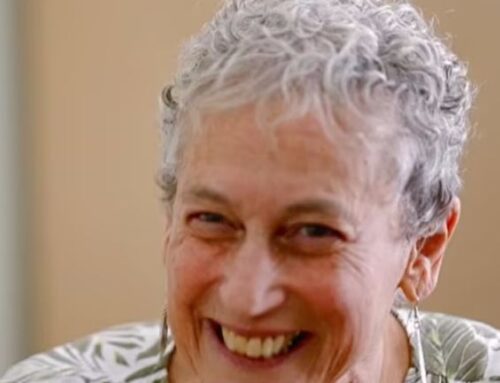Four speakers delved into the issue of whether euthanasia is an individual decision or collective choice during an April 7 debate at the science faculty of the Université du Québec à Montréal, to celebrate the UN-sponsored International Day of Health.
Francine Lalonde, MP for the Bloc Québécois and author of euthanasia Bill C-407 – which died on the order table last November when Parliament was dissolved and elections were called – was assisted by a panel of professors from the three francophone universities in Quebec.
Lalonde re-iterated her intention to re-introduce her private member’s bill at some point in the current session of Parliament. Her opinion on the issue seems to have remained basically the same: since active euthanasia is already being committed on a growing number of patients, the practice should be regulated by law. She dismissed palliative care as a complementary solution, at best. People should have the right to die with dignity when certain conditions are met, she argued.
Professor Hubert Marcoux, of the department of family medicine at Laval University and also head of the geriatric department of the Jeffrey Hale Hospital in Quebec, provided some statistics on decriminalized euthanasia and assisted suicide practices in Holland, Belgium and Switzerland, followed by a philosophical analysis of the consequences of moral and physical suffering for the patient, his family and society.
Patrick Vinay, professor at the department of medicine and medical specialties at the University of Montreal and medical practitioner at the palliative care unit of Notre Dame Hospital, stressed the need for more and better palliative care, in order to enable patients to live their lives plainly to the end, even while dying. He mentioned a sleep treatment he has developed for his terminal patients, which eventually allows them to come to terms with their condition, thereby improving their quality of life.
Brian Mishara, professor at the department of psychology at the University of Montreal and director of the Suicide and Euthanasia Research and Intervention Centre, was the only one on the panel who openly criticized Lalonde’s bill, on its formulation. First, he expressed serious reservations about the “apparently lucid” clause in the bill as one of the conditions in which a patient could express his or her desire to die. Secondly, he stated that, contrary to the situation in Holland and Belgium, Lalonde’s bill would allow a third person to participate in the execution of the “apparently” lucid patient’s desire. Finally, he mentioned that no decent palliative care is available in Canada, yet.
Mishara also said suicide is legal in Canada, as is the refusal to undergo medical treatment and the possibility to legally administer drugs that have the double effect of killing the patient in the process.
During question period, Mishara was severely reprimanded by one of the intervenors for using the term “killing” in the execution of a patient through euthanasia or assisted suicide.
Two more interventions came from Renée Joyal, a lawyer and political science and law instructor at the University of Montreal, and from anthropologist Luce Desaulnier, professor at the department of social and public communications at the Université du Québec à Montréal.
Joyal clearly expressed her fear that the right to die could eventually become the duty to die. Therefore, all should be done to prevent trivialization of the right to life and of the right to liberty and dignity. Referring to the presentations of Vinay and Mishara, she stressed that the quest for a new humanism had become necessary.
Desaulnier said the issue of euthanasia comes down to economics. She said that, for instance, when there is not enough palliative care available at any given time, the law of supply and demand would inevitably call for more drastic solutions, especially in a context dealing with shortages of nurses and medical practitioners.




